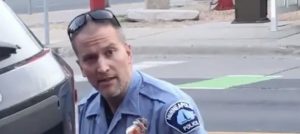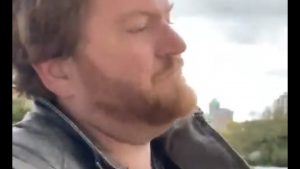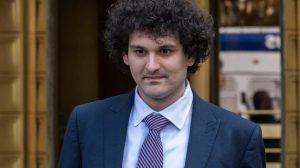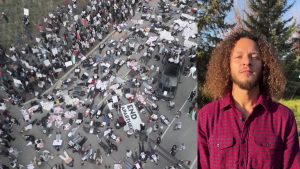Darnella Frazier, an 18-year-old, who recorded the video of George Floyd’s murder said during trial on Tuesday that she regrets not being able to save Floyd’s life.
Derek Chauvin is charged with murder and manslaughter for his role in Floyd’s death on May 25 2020, which was captured on video and seen by millions, sparking anti-racism protests around the globe, reported AFP.
In the stomach-churning video, Chauvin is seen kneeling on Floyd’s neck for more than nine minutes as the handcuffed Floyd complains that he can’t breathe and eventually falls unconscious.
She said, “It’s been nights I stayed up apologizing and apologizing to George Floyd for not doing more and not physically interacting and not saving his life.”
“I have a Black father. I have a Black brother. That could have been one of them,” she said in court with tears rolling down her face.
Also Read: George Floyd trial day 1 highlights: Jury sees video of Floyd’s death at his murder trial
Frazier is one of the witnesses who gave emotional testimony on Tuesday at the high-profile trial of former Minneapolis police officer Derek Chauvin.
When asked to describe Floyd’s state during the altercation, Frazier said he was “terrified” and “begging for his life.”
“It wasn’t right. He was suffering. He was in pain,” she said. “I knew it was wrong. We all knew it was wrong.”
Adding in reference to Chauvin who was seated on the defense side, Frazier said, “it’s not what I should have done it’s what he should have done.”
Another witness, Donald Williams, 33, narrated how he called 911 right after Floyd passed away to report a “murder.”
He recounted how he pleaded with officers on the scene to render assistance to Floyd, who was being arrested for allegedly passing a counterfeit $20 bill.
Also Read: George Floyd trial: Court adjourned due to a ‘technical glitch’
Williams, a mixed martial arts instructor, said Floyd was already in “danger” when he arrived on the scene.
“You could see that he was trying to gasp for air, trying to breathe,” he said. “You could see his eyes slowly rolling back in his head.”
Williams said Floyd was being held by Chauvin in a “blood choke” used in wrestling or martial arts and he saw him lose consciousness.
After an unconscious Floyd was taken away in an ambulance, Williams said he made the 911 call.
“I believed I witnessed a murder,” Williams told the court. “I didn’t know what else to do.”
Portions of his 911 call were played in the courtroom.
“He just went and killed this guy,” Williams said in the call. “Murderers, bro… they just killed that man in front of the store.”
Asked who he was referring to, Williams said “the officer sitting over there” and pointed to Chauvin.
“Did you see Mr Floyd fighting back?” prosecutor Matthew Frank asked Williams.
“No,” Williams said.
Under questioning from Chauvin’s defence attorney, Eric Nelson, Williams acknowledged that he called Chauvin and the officers names at the scene.
“You called him a tough guy,” Nelson said. “You called him a ‘bum’ 13 times.”
“They were not listening to anything I was telling them,” Williams said. “I had to speak out for Floyd.”
The video of Floyd’s death was played for the nine-woman, five-man jury on Monday and is expected to take center stage at Chauvin’s trial.
Prosecutors are seeking to demonstrate that Chauvin had no justification for using a dangerous hold on Floyd that led to his death.
Chauvin’s attorney countered on Monday that Floyd was on drugs and his death was caused by the drugs and a medical condition rather than asphyxiation.
“You will learn that Derek Chauvin did exactly what he had been trained to do,” Nelson said.
Chauvin, a 19-year veteran of the police force, faces up to 40 years in prison if convicted of the most serious charge — second-degree murder.
The trial is drawing worldwide attention and the White House said Monday that President Joe Biden will be among those “watching closely.”
Ben Crump, an attorney for the Floyd family, called it a “landmark trial that will be a referendum on how far America has come in its quest for equality and justice for all.”
The trial is expected to last about a month.
Three other former police officers involved in the arrest — Tou Thao, Thomas Lane, and J. Alexander Kueng — are to be tried separately later this year.




